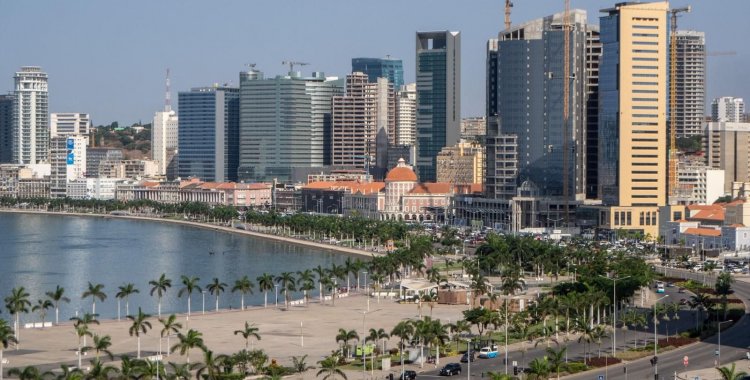João Lourenço is the Acting President of the International Conference for the Great Lakes Region (CIRGL), an organization created after the political conflicts that marked the Great Lakes Region in 1994.
It brings together Angola, Burundi, Central African Republic, Congo, Democratic Republic of the Congo, Kenya, Uganda, Rwanda, Sudan, South Sudan, Tanzania and Zambia.
According to João Lourenço's press services, the Presidents or representatives of six countries: CAR, Congo, Rwanda, Chad and Sudan are expected in Luanda for the high level meeting.
The violence associated with the general elections in the Central African Republic has already caused more than 84,000 refugees and about 100,000 internally displaced persons, the UN reported this week, estimating that 2.8 million people need humanitarian assistance and protection.
"In 10 days, nearly 25,000 Central Africans fled their country. Most of these people fled to the Democratic Republic of Congo (DRCongo), crossing the Oubangui River, where the number of refugees reached 74,000," a statement released on Tuesday by the United Nations Refugee Agency (UNHCR) indicated.
A total of 4891 people arrived in Cameroon, most of them in the border town of Garoua-Boulai, 4858 entered Chad and about 388 reached the Republic of Congo, but "the fastest increase in the number of new arrivals is now in the provinces of Bas Uélé and Oubangui, in the north of the Democratic Republic of Congo," according to the communiqué, which quotes the latest humanitarian bulletin of the UN agency.
The influx of refugees from the Central African Republic (CAR) to neighboring countries is not greater only because the country's borders with Chad and Cameroon "remain officially closed under travel restrictions to prevent the spread of covid-19," notes the UNHCR.
Since the violence and tensions related to the elections on December 27 erupted, some 200,000 people have moved internally, and according to the United Nations Office for the Coordination of Humanitarian Affairs (OCHA), half of them have returned home.
The United Nations estimates that 2.8 million people - more than half the population - are currently in need of humanitarian assistance and protection.
UNHCR continues to advocate for access to asylum for those fleeing the CAR and has stepped up operations in Cameroon, Chad, the Republic of Congo and the DRC.
Most newcomers to the various areas in the various countries are housed in host communities or makeshift shelters and urgently need water, shelter, access to health services and sanitation facilities as part of the prevention of the covid-19 pandemic and other diseases.
The voluntary repatriation of refugees from the CAR after years of exile in Cameroon and the DRC had resumed in November 2020, but is now temporarily halted.
The UNHCR indicated that the voluntary return program "will resume when the security situation in the main areas of return in the CAR is conducive to safe and dignified repatriation and sustainable reintegration of returnees.
The UN agency and its partners in CAR are also collecting information on abuses committed by armed groups, including sexual violence.
The UNHCR is also concerned about disruptions in the country's main supply route, which links the capital, Bangui, to the rest of the country, as well as to the nearest port in Cameroon. The situation "prevents the safe and timely delivery of humanitarian and other essential commercial supplies to the CAR," the agency notes.
On the ground, the prices of essential products, including fish and oil, have risen by more than 50 percent. "This has had a devastating impact on the protection and well-being of civilians, including internally displaced persons and refugees," notes the UNHCR statement.
On December 17, six of the armed rebel groups occupying two-thirds of the CAR allied themselves in the Coalition of Patriots for Change (CPC), and on December 19, eight days before the presidential and legislative elections, announced an offensive to prevent the re-election of President Faustin Archange Touadéra.
Since then, Bangui has been blocked by the main armed groups, which have carried out several attacks on important national roads linking the capital to neighboring countries.
Touadéra's reelection, with 53.16 percent of the vote, was validated on January 18 by the Constitutional Court, which rejected appeals from opponents claiming "widespread electoral fraud.
Touadéra had been declared reelected on January 4, after a vote that was contested by the opposition and in which only one in two registered voters had the opportunity to vote, because of insecurity outside the capital, Bangui.
The court validated the voter turnout at 35.25 percent, well below the 76.31 percent provisionally announced by the electoral commission on January 4.
The United Nations mission in the country, Minusca, lost at least seven blue helmets as a result of coordinated and simultaneous attacks at the end of the year by the armed groups meeting in the anti-Balaka coalition, allied with former President François Bozizé.
The CAR fell into chaos and violence in 2013 after the overthrow of the then head of state, François Bozizé, by armed groups gathered in Séléka, which prompted the reaction of other militias, grouped in an anti-Balaka coalition.
Since then, the Central African territory has been the scene of community confrontations between these groups, forcing almost a quarter of the CAR's 4.7 million inhabitants to leave their homes.
Portugal currently has 243 military personnel in the CAR, of whom 188 are from Minusca and 55 participate in the European Union (EUTM) training mission led by Portugal, Brigadier General Neves de Abreu, until September 2021.







